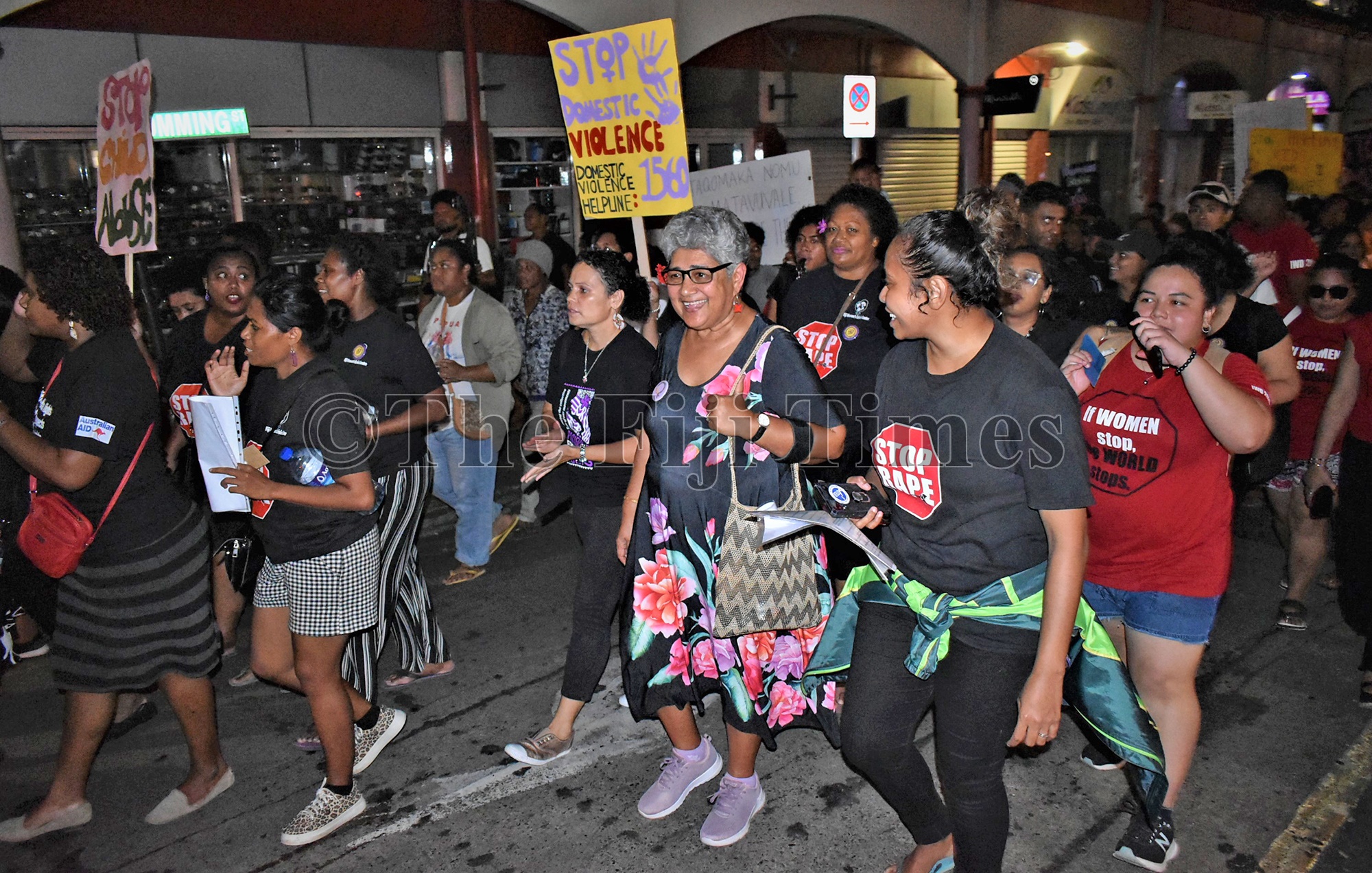EVERY 10 minutes, a woman is killed by her partner or a family member. Around the world, 2.7 billion women are barred from having the same job opportunities as men — just because of their gender. And as climate change and disasters intensify, women and girls are paying the highest price.
These are not just statistics. They are wake-up calls.
In many places, including the Pacific, women and girls face staggering levels of violence. Up to 68 per cent of women here report experiencing physical or sexual violence from an intimate partner during their lives — more than double the global average. Many of these same women are the backbone of local economies: between 75 per cent and 90 per cent of market vendors in the Pacific are women. Yet they are routinely excluded from the decisions that shape their lives and communities.
The barriers do not stop there. Across the globe, 257 million women who want to avoid pregnancy still lack access to safe, modern contraception. One in four girls are married before she turns 18, denied her rights and her future. And at the current rate, it will take until 2063 to achieve gender balance in parliaments, and another 137 years to end poverty for all women and girls.
Thirty years ago, world leaders came together to adopt the Beijing Declaration and Platform for Action — a historic agreement to advance gender equality. This year, as we mark its 30th anniversary and reflect on the newly adopted Political Declaration at the 69th Commission on the Status of Women (CSW69), we must be honest: progress has been too slow, too fragile, and too unequal.
But there is hope — and leadership — right here in the Pacific.
The region has long shown a strong commitment to gender equality. Regional frameworks like the Pacific Platform for Action, the Revitalised Pacific Leaders Gender Equality Declaration, and the 2050 Blue Pacific Strategy demonstrate that our leaders recognise this is not just a women’s issue — it is a development issue, a climate issue, and a security issue.
As we look back to the 15th Triennial Conference of Pacific Women in 2024, we have a powerful chance to align regional priorities with global goals and ensure women’s voices are heard and counted. The newly adopted Beijing+30 Action Agenda provides a clear roadmap for change.
It outlines three urgent priorities:
1. Close the digital gender gap to boost women’s economic opportunities;
2. Invest in essential services — like education, healthcare, and childcare — to lift communities out of poverty; and
3. Put women’s leadership at the heart of peace, climate, and security efforts.
These are not just ideals. They are smart, strategic investments in a better future. Closing the digital divide can unlock innovation and prosperity. Expanding access to health and education can create millions of jobs. Better gender data can drive smarter policies.
But to make this happen, we need real investment at all levels — $US360 billion ($F812b) each year — and even more importantly, we need action.
Governments must turn words into measurable commitments. Business leaders and development partners must set clear goals and be transparent about progress. Citizens must challenge bias and push for change — at home, in workplaces, and in communities.
As part of these ongoing efforts, the Pacific Technical Cooperation Session of the CEDAW Committee recently held in Fiji was a critical opportunity for turning commitments into action. By bringing together governments, civil society, and development partners, the Session reinforced national accountability for advancing women’s rights and gender equality across the Pacific. It supported countries in aligning their national plans with global and regional frameworks — such as the Beijing+30 Action Agenda and the Pacific Platform for Action — and provided an opportunity to assess progress, close policy gaps, and strengthen collaboration. This work is essential to ensure that the rights of all women and girls are not only protected in principle but upheld in practice.
The year ahead presents critical opportunities: from the Fourth International Conference on Financing for Development to the 79th session of the United Nations General Assembly. These moments must be used to drive bold action under the Beijing+30 banner.
In a world where progress on gender equality is under increasing threat, the United Nations stands firm. Gender equality is not just a goal — it is a prerequisite for solving the biggest challenges of our time, from poverty to climate change.
We cannot afford to wait another 30 years.
Let us act — decisively, together — to ensure that every woman and girl can live free from violence, make her own choices, and lead with equal power and opportunity.
The time for transformation is now.
n CHRISTINE ARAB is the UN Women Regional Director for Asia, and the Pacific.
n DIRK WAGENER is the UN Resident Coordinator in Fiji, Solomon Islands, Tonga, Tuvalu, and Vanuatu. The views expressed herein are the authors.
By Chrsitine Araba and DIRK WAGENER



